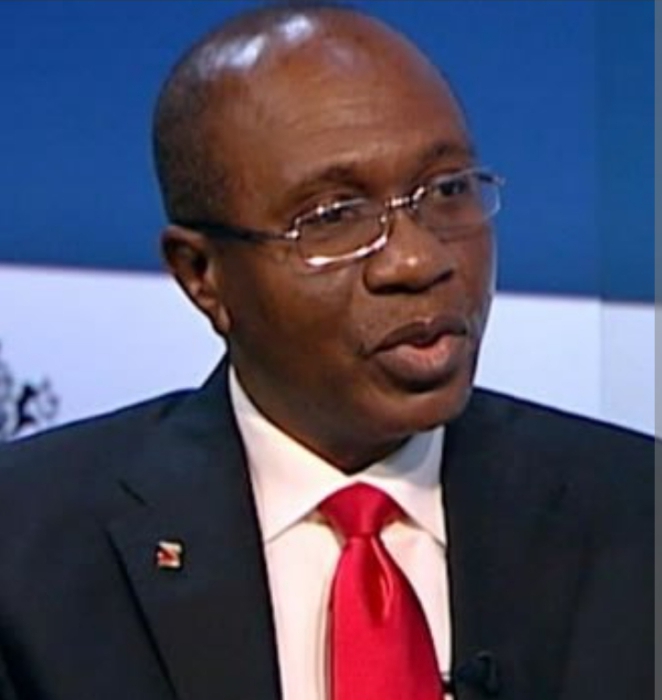
The Coalition of Northern Groups (CNG) has supported the National Assembly’s resolve to compel the Central Bank of Nigeria (CBN) to suspend the implementation of its cash withdrawal limit policy.
The groups’ Spokesperson, Mr Abdul-Azeez Suleiman, said this at a news conference on Wednesday in Abuja.
Suleiman said that the group unequivocally backed the National Assembly’s resolve to compel the CBN Governor, Mr Godwin Emefie, to suspend the policy
It will be recalled that the House of Representatives had last Thursday, asked the CBN to suspend the policy.
The Senate also on Wednesday issued fresh order to CBN over the cash withdrawal limit policy, asking the apex bank to make upward adjustment of the proposed limit
The Senate called for the review upward of the limit from N100, 000 per week for individuals and N500, 000 per week for Corporate bodies in response to public outcry.
Sen. Ajibola Basiru, APC Osun Central had during the debate on the report and the recommendation on it said that the proposed threshold of N100,000 and N500, 000 withdrawal per week for individuals and corporate bodies respectively was unrealistic.
He said that CNG was extremely worried about the imminent crises the policy might likely bring to the populace, especially unbanked northerners.
The CNG spokesman claimed that the policy would impact negatively on the livelihood of many individuals and enterprises.
He said that as the representative of various interest groups from Northern Nigeria, the CNG, after watching and analyzing the situation carefully, noted that the policy was ill timed.
“The CNG notes that the timing without adequate preparation and sensitization of the critical mass that drives the economy (the SMEs and MSMEs) could prove counterproductive and further drive many below the poverty line.
“We note also that the banking infrastructure and mobile/digital facility to drive the cashless policy in Nigeria and in the North in particular, are not sufficiently developed.
“The current cashless payment channels were insufficient to meet the policy’s demand which is complicated by a lack of financial infrastructure,” he said.
According to him, because the system is largely driven by ICT, the policy is vulnerable to the risks of fraudulent practices, as any security flaws can be exploited by astute fraudsters to perpetrate fraud.
“Whereas electricity is a critical infrastructure for an efficient e-payment system, regrettably, Nigeria cannot boast of consistent power supply in both urban and rural areas which will undoubtedly make seamless transactions difficult.
“Because of the technology involved, some level of literacy is required to operate successfully in a cashless economy.
“As a result, Northern Nigeria, which has a high rate of illiteracy, will face serious challenges and will be negatively impacted by the policy,” Suleiman added.
He noted that millions of artisans, traders, market women and farmers carry out their daily economic lives using cash.
“The size of Nigeria’s informal economy is vast, estimated to be 57.7 per cent of the total size.
“By rapidly withdrawing most cash from the market without an alternative widely used system being available, will smash the economy,” he said.
He said that the policy would also make it difficult for the larger population in the North to transact businesses effectively, because of inadequate banking system.
Suleiman said that the situation would also be made worse with non-functioning internet connectivity in many communities across the region.
According to him, if the process is rushed and the economy loses confidence in the system due to high level of fraudulent activities, the Nigerian economy will suffer severely.
“The policy will most certainly take away the jobs of thousands of young people operating POS, at a time Nigeria is battling with serious unemployment, particularly among the young population.
“The new policy will worsen the already tight economic environment, especially in communities with blind spots or poor network connectivity.”
He said that another risk was that it might likely cause disruptions in the economy, especially in rural areas where bank branches are few and telecommunication networks very weak.
He said: “Small and Medium Enterprises (SMEs) that have small working capital tend to hold most of it in cash to keep their businesses running.
“With the inflation rate hovering around 20 per cent and over 100 million Nigerians in multidimensional poverty, the worst scenario would be to allow the government to further cripple the economic activities of Nigerians with this unfavourable CBN policy.”
He said that the CNG had resolved to take further necessary actions to stop the CBN from going ahead with the implementation of the policy